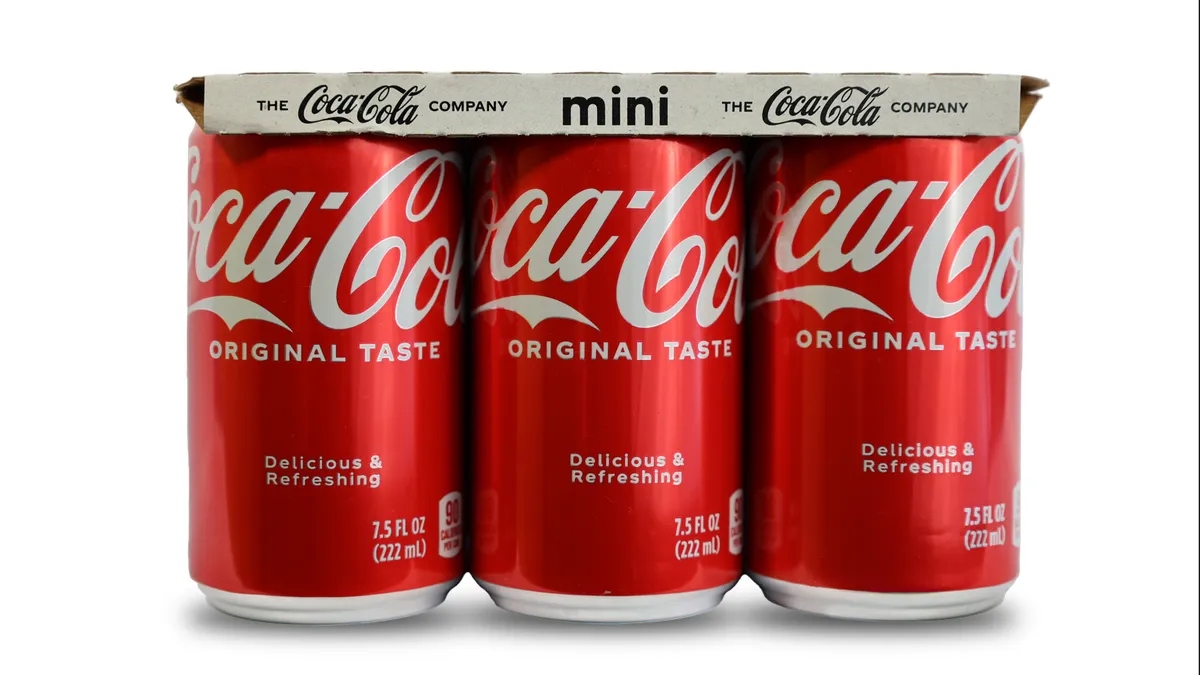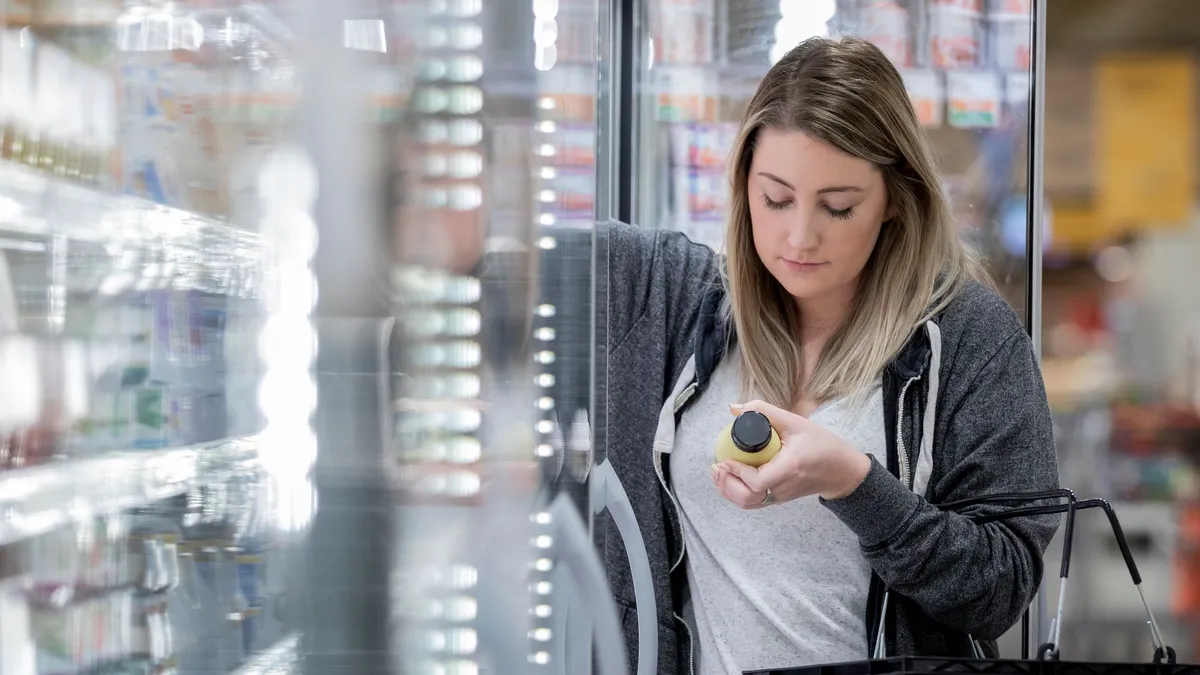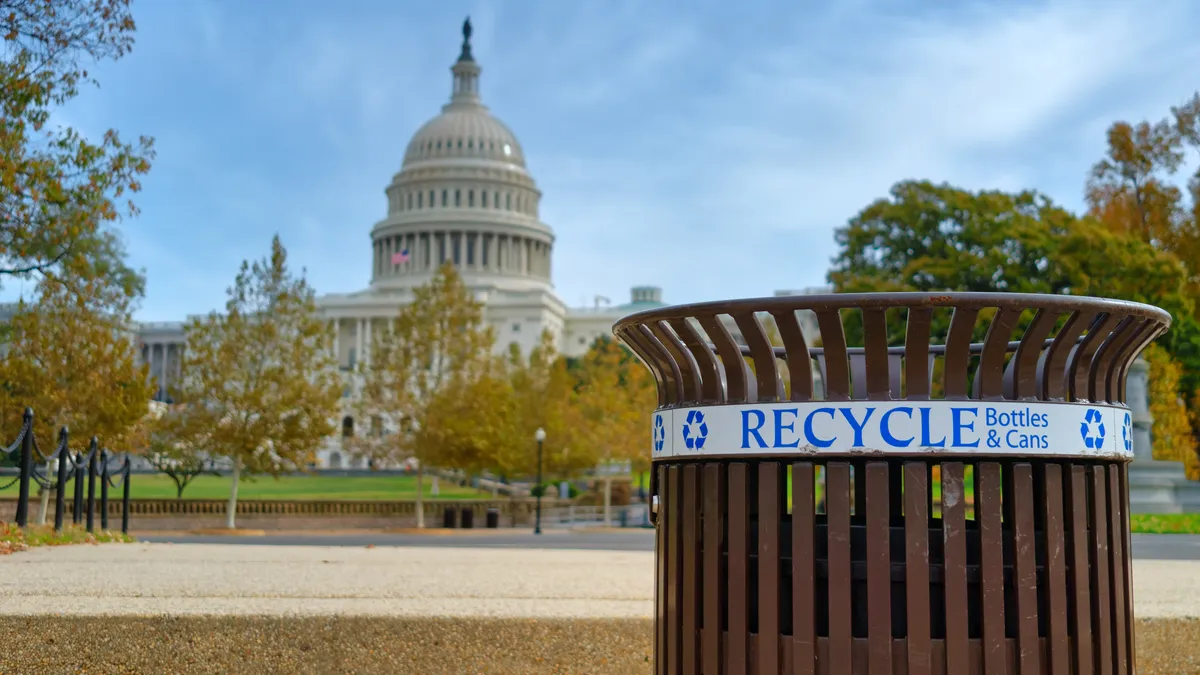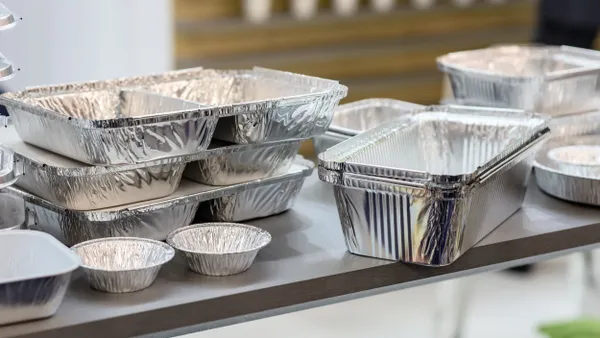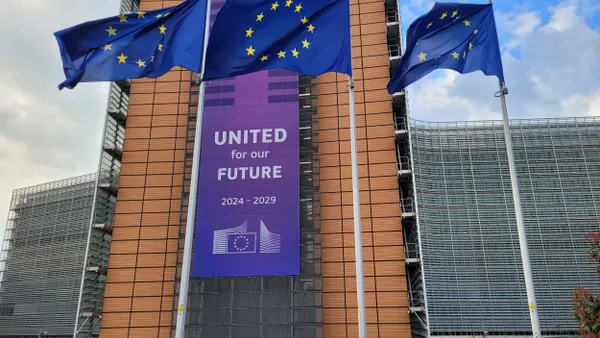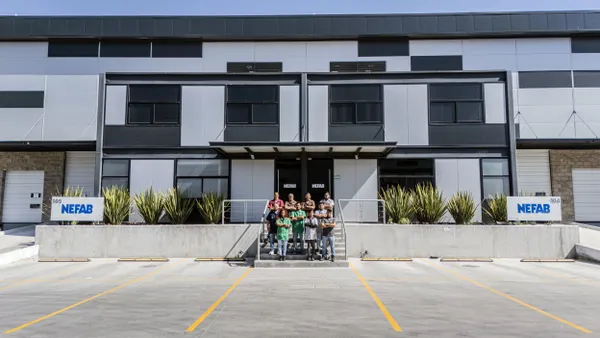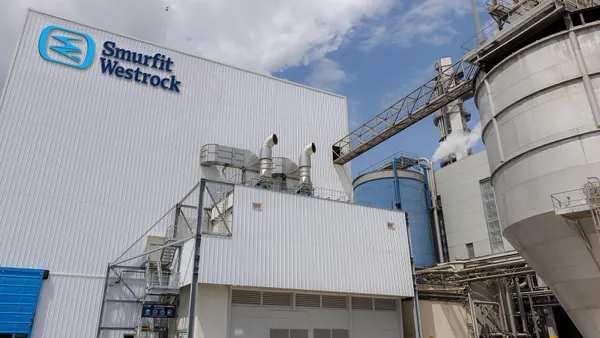As its competitor PepsiCo moves to paperboard beverage carrier systems en masse in North America, certain bottlers in Coca-Cola’s network are in the midst of their own transitions away from plastic rings.
A year after becoming the first operator in the U.S. to adopt Graphic Packaging International’s KeelClip paper-based clip system for cans, Liberty Coca-Cola Beverages reports having transitioned all of its mini cans to the system, or almost 3.1 million cases.
Plastic rings are perhaps most infamous for the havoc they wreak on marine life and beverage brands have been looking for ways to move away from them. PepsiCo announced in August it would begin rolling out paperboard packaging – recyclable wraps and clips, in lieu of plastic rings – on beverage multipacks in the U.S. and Canada for brands including Pepsi, Mountain Dew and Gatorade. PepsiCo said it was “the first beverage company to commit to a North American roll out” of this approach.
The Coca-Cola Co. has its own packaging sustainability goals, including to make all of its packaging recyclable worldwide by 2025. It’s also aiming to reduce its use of virgin plastic from non-renewable sources by a cumulative 3 million metric tons between 2020 and 2025. However, unlike competitors, Coca-Cola’s system in the U.S. consists of more than 60 independently owned bottlers, which manufacture, package, merchandise and distribute final branded beverages to customers and vending partners.
“The Coca-Cola Company works very closely with our bottling partners to make meaningful progress towards our shared sustainability goals, including driving innovation in secondary packaging,” a Coca-Cola spokesperson said in an email in August.
Liberty, a Philadelphia-based bottler servicing restaurants, supermarkets and retailers in northeastern states, last summer began using a KeelClip 1600 multipacking machine at its Elmsford, New York, facility to apply clip-style paper packaging to beverage cans that Graphic Packaging said eliminates the need for plastic rings and shrink film.
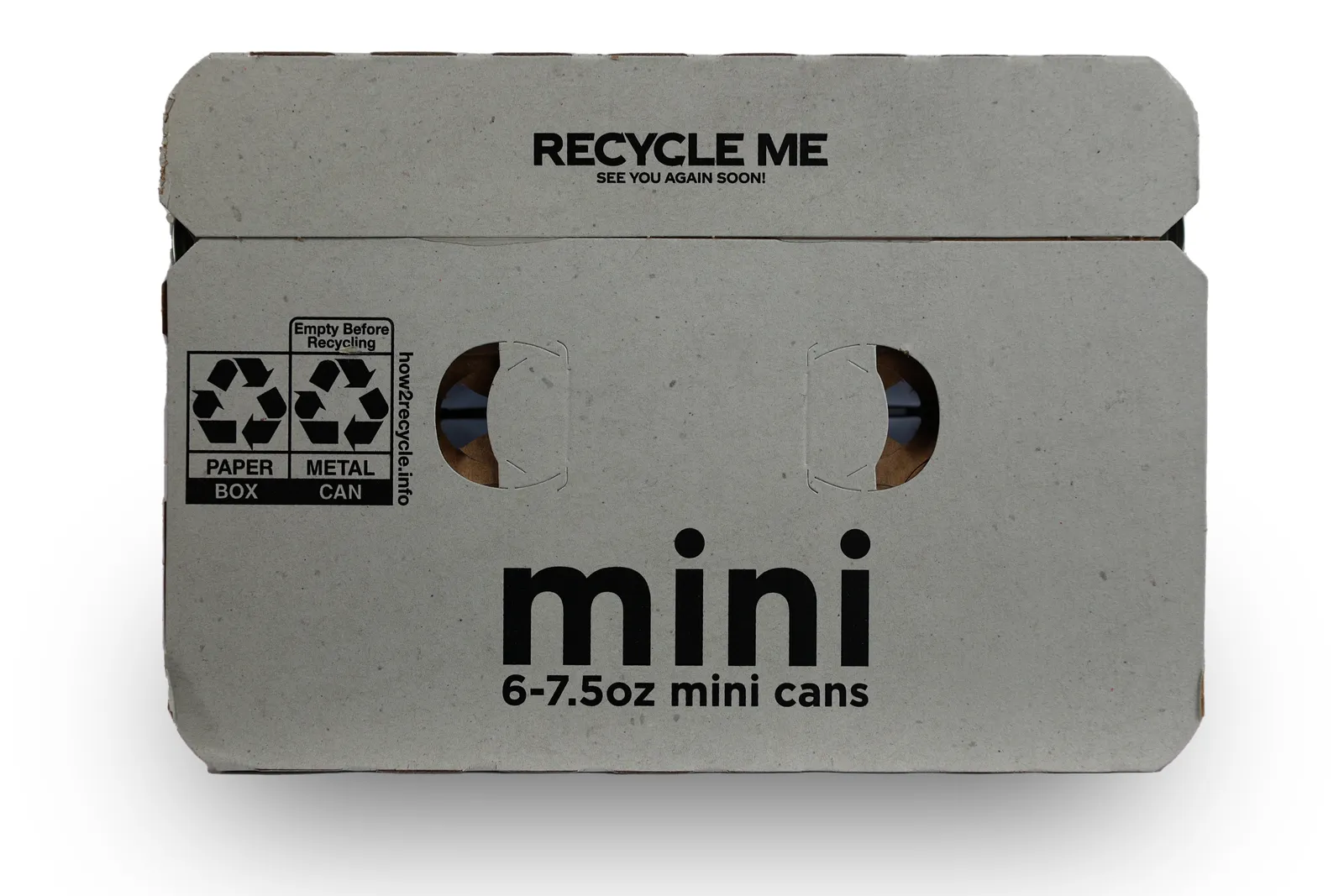
Liberty estimates that by transitioning the 3.1 million cases, out of approximately 42 million to 45 million total cases of cans and bottles typically processed at the Elmsford facility, it effectively eliminated nearly 42 tons of plastic from the supply chain in that span. Liberty is now reviewing other product types and sizes that could be packaged using plastic-free alternatives.
Dylan Penn, senior operations engineering manager at Liberty Coca-Cola Beverages, said that one initial challenge for it or other bottlers in transitioning to this technology, regardless of vendor, is that the new machinery doesn’t identically match the footprint of its previous equipment. This poses slight difficulties in terms of fitting the solution into its existing production processes throughout facilities.
Additionally, the raw material costs more for paperboard than for plastic alternatives. “But our investment into this package is a commitment toward the future,” and there’s potential for economies of scale as other North American partners adopt alternatives, Penn said.
Despite Coca-Cola’s varied network of bottlers, “we're not operating in a vacuum,” Penn said. “We are communicating some of our learnings and opportunities in the space.”
In Europe, DS Smith announced this month a collaboration with Coca-Cola HBC Austria to replace plastic handles on 1.5 liter PET soft drink multi-packs with cardboard-based outer packaging. The Coca-Cola, Fanta, Sprite and Mezzo packs are being rolled out at grocery stores in Austria.
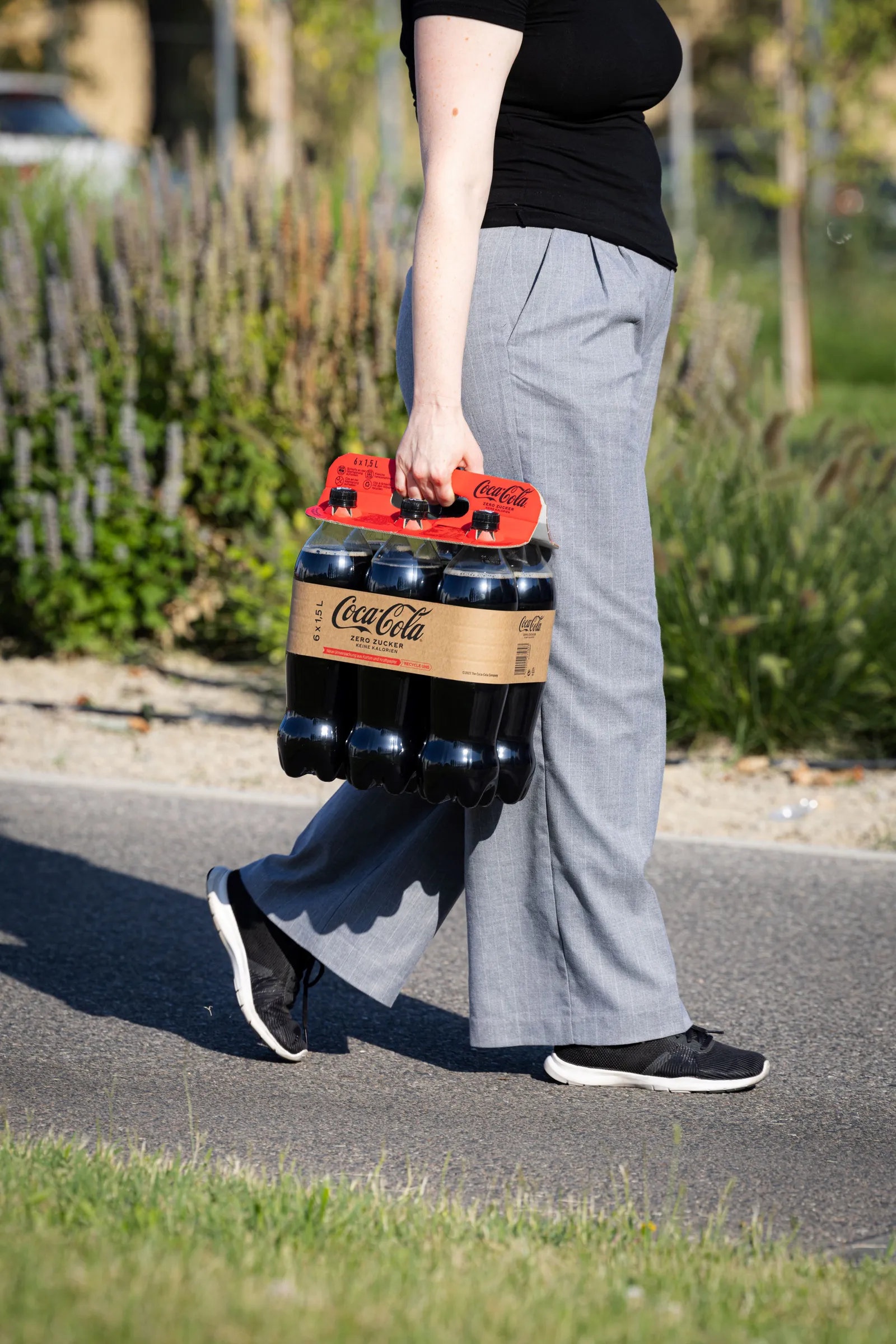
DS Smith says the 100% recyclable corrugated handle, dubbed Lift Up, can be used on different bottle sizes and has a soft, easy-to-carry grip. The company did not have additional information to provide regarding expansion of the product in other countries.
Stefano Rossi, CEO of the packaging solutions division at DS Smith, said in a statement that the packaging was designed using the company’s Circular Design Metrics approach, aiming to use the least amount of material possible and reduce environmental impact while still looking appealing at points of retail. “Collaboration with our partners Coca-Cola HBC and Krones is key to reducing single use plastics and delivering innovative change at scale,” Rossi said.



